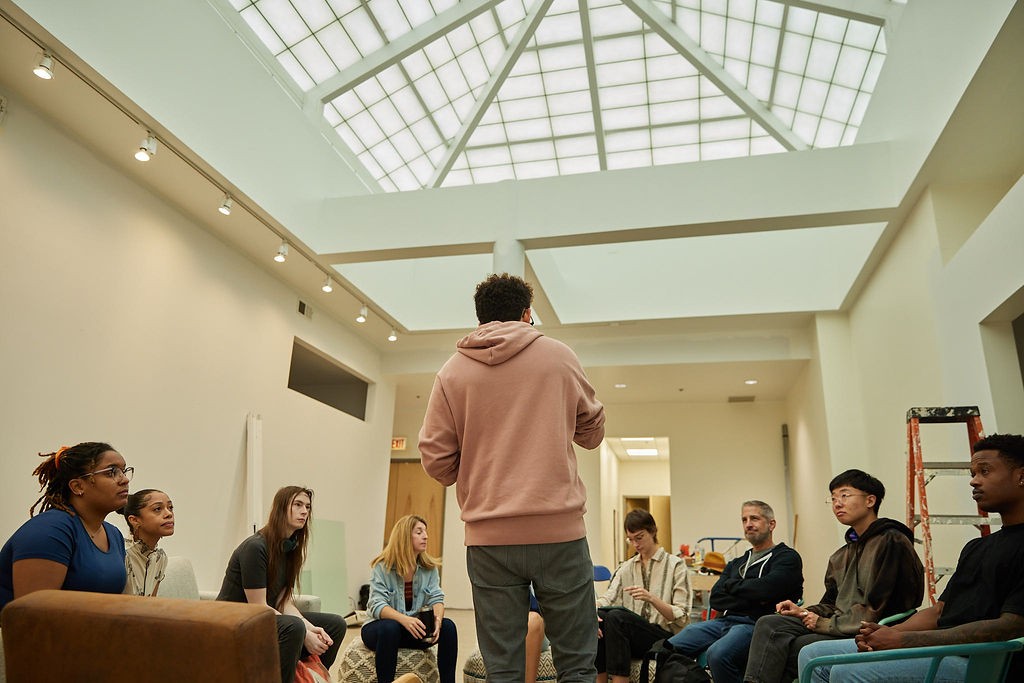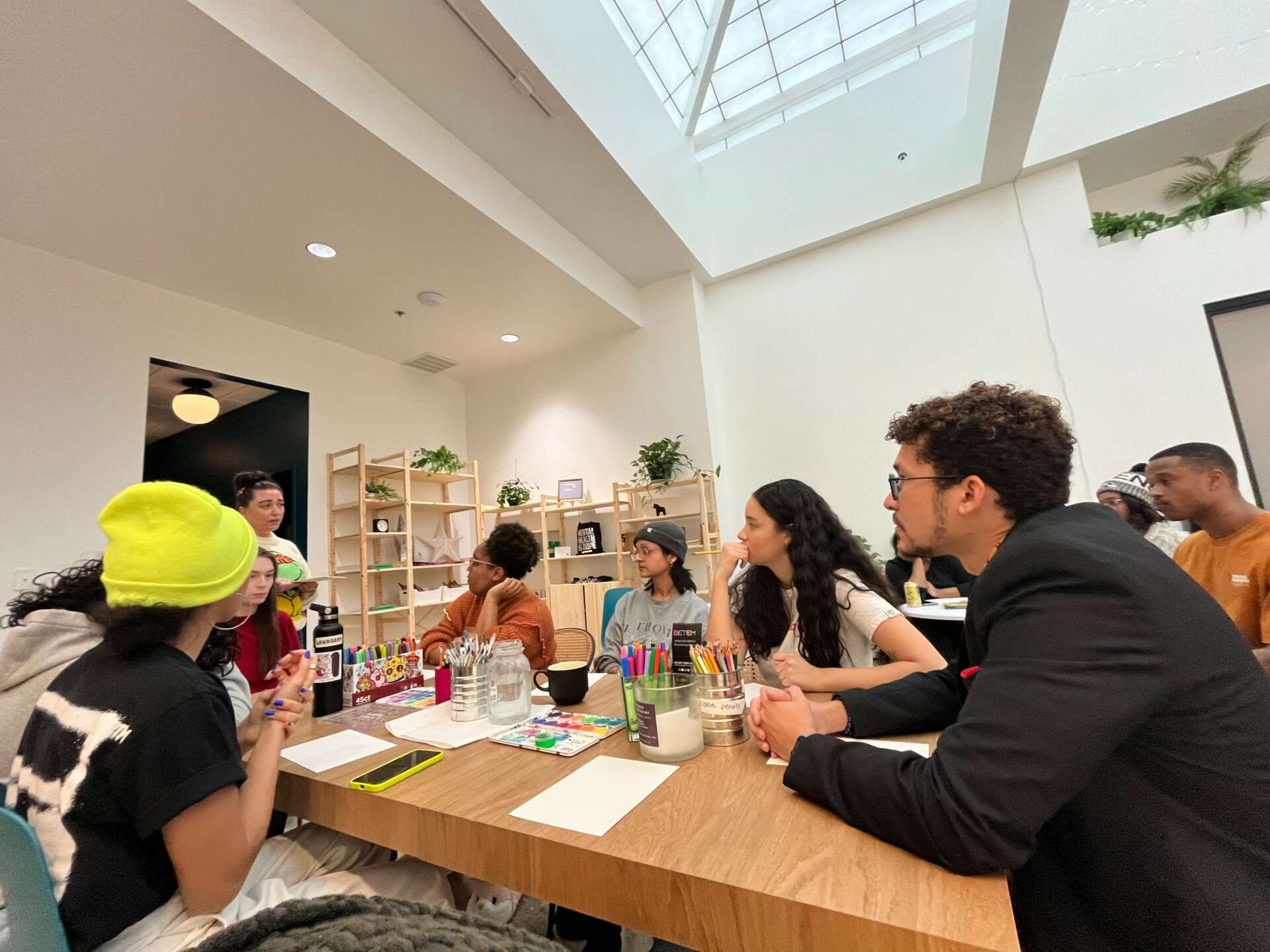We recently connected with Fabrice Lubin and have shared our conversation below.
Hi Fabrice, thanks for joining us today. Have you ever experienced a times when your entire field felt like it was taking a U-Turn?
In 2007, during an interview for a practicum placement and training for a local Hospital in Chicago that served marginalized communities, a white supervisor implored if I had any questions. As someone interested in community engagements and initiatives, I asked how community interventions were possible when the city itself was aggressively cutting funds to service these areas. Their response was to barrage me for asking the question in the first place. Leading him to remark: “you’re here to answer my questions, I’m not here to answer yours.”
I left the interview, sobbed on the EL, but the incident was not over yet. On the same day, this clinical supervisor would Google search my name, read my LiveJournal, and report me to my graduate school as he was “concerned about my behavior during the interview.” He did not mention yelling at me during this interview, and he did not specify the tears that stained my face. When I explained my situation to the white representatives from my school, they excused his behavior by saying, “There’s no way he could be racist; he supervised me.” They told me that having a personal LiveJournal was problematic, that I shouldn’t publicly display Bjork lyrics, and that there was “no place for poetry when you’re a psychologist.”
I completely disengaged from the majority of my graduate courses. My voice began to recede into the background of my classes. I refused to participate if it meant exposing myself to ridicule perceived or real. Later in 2008, my cousin was shot and murdered in the street. I subsequently abandoned work on my thesis, the interpretation of this act by faculty was taken as a failure on my part, not as someone who was in the stages of grief. Of course, it was my “fault” I never asked for assistance or expressed how painful this loss had been in my life. I never talked about not being able to sleep and struggling to write a eulogy while boarding an airplane for my home state. I never wanted them to think any less of me, so it was better if they didn’t think of me at all.
Moments like these directly reinforced that I had to suppress my own emotions, experiences, and hurt. If, as a graduate student in a counseling program, I felt mislabeled, diagnosed, or punished for speaking out against oppression. Why would anyone from the BIPOC community willingly comply with other mental health professionals when they risk losing their kids, their jobs, or worse? More frightening still, as a perceived leader in the mental health field, who should I turn to for supervision, support, and care? Who would I work to serve as a model for appropriately “integrating” or “processing” my trauma? Especially when the impact of discrimination continues to bruise me and those in my community? Subsequently, I did attend therapy with white clinicians three in total at various times of my life. The number of times when issues of race, culture, or oppression were brought up by these educated, progressive, healing people? Zero.
The 2020 Pandemic and the protests following the tragic deaths of George Floyd, Ahmaud Arbery, and Breonna Taylor prompted a seismic shift in discussions about mental health care for marginalized individuals. Despite this, significant economic disparities and a lack of cultural representation in mental health posed barriers to providing culturally appropriate care and support.
During this period, I recognized the importance of my experiences and position in the field. In the summer and fall of 2020, I transitioned from being an individual practitioner to creating a group practice focused on training, support, and the evolution of culture and diversity within mental health. Over the past four years, we have established an internship program, art therapy, and groups catering specifically to underserved communities, particularly the BIPOC queer and trans communities, who often face financial barriers and a lack of competent clinicians.

As always, we appreciate you sharing your insights and we’ve got a few more questions for you, but before we get to all of that can you take a minute to introduce yourself and give our readers some of your back background and context?
Within our private practice located in Chicago Il, we seek to create an environment where vulnerability is encouraged, culture is welcomed, and consent is paramount. We do this by loudly, proudly, and transparently asserting our cultural identities and the values we have towards dismantling oppressive dynamics. Our waiting room, for example, is designed to facilitate solidarity by encouraging those coming in and out of sessions to linger, rest, and pause. A typical waiting room is filled with magazines, television, or other ways to distract. We attempted to make a space where people could connect and share without having to pretend they’re not seeking help. We play diverse music throughout the space, often wearing our cultural influences proudly, hoping to stimulate and remind people that healing can take place anywhere and can take on different forms. We foster the creation of groups that are peer-led and community-oriented.
Within heart of our space is an extraordinary collaboration with the artist Ryan Tova Katz, a celebrated Chicago painter and muralist. Katz’s artistic flair is reflected in the visually distinctive and unique aspects of our expanded facility. Her work transforms our vision into an environment that not only promotes healing – it nourishes imagination and dreaming.
Our expanded facility feature therapy rooms thoughtfully designed for sound control, abundant natural light, and the flexibility to accommodate various interventions such as individual, group, family, and couples counseling. Anchoring the space is a grand, 1,000-square-foot event area, an inclusive platform that allows us to host a range of community events from open mics to educational workshops.
This space reflects our commitment to accessibility, encouraging engagement with the social justice community and reducing the stigma often associated with access to mental health services.
It is an act of changing the environment in such a way that something new can grow. It is about providing an opportunity for supervision, modeling, mentorship, and leading. It is about understanding the nuances of experience and teaching others how to navigate through oppressive environments. It is about signaling to others that their dreams, values, and character are essential to shaping our world for the better. Creating the right environment isn’t about knowing what to “do” in every given situation. It’s about understanding what your values are and attempting to hold yourself accountable for bringing it out in the world.
For Real Therapy was designed to be a place where clients who appreciate and believe in power of creative action can flourish.


Any advice for managing a team?
In my experience in the field of mental health, we often focus on our clients but might not always provide adequate support for our clinicians and staff. The pandemic highlighted the necessity of addressing this gap, as everyone navigated the challenges of societal changes, trauma, and transition in real-time. Therapists and clients alike were adjusting to significant changes, including the shift to virtual/remote sessions, which blurred the lines between personal and professional lives for our clinical staff. This situation underscored the critical impact of support exhaustion on both our clinicians and the clients they serve.
To manage a team effectively and maintain high morale, especially under such circumstances, I’ve emphasized transparency, curiosity, and a collaborative approach. We’ve engaged in regular check-ins and created wellness initiatives tailored to our staff’s needs, fostering a culture of shared responsibilities rather than inflexible hierarchies. For instance, we involved our clinical team in the design of their office spaces, allowing them to infuse personal touches that reflect their personalities, cultural backgrounds, and passions. This approach has not only made our staff feel valued and ‘seen’ beyond their professional roles but has also led to positive outcomes such as improved staff retention, higher job satisfaction, and enhanced client care.
Moreover, by fostering adaptability and resilience within our team through these initiatives, we’ve built a stronger, more cohesive unit that’s better equipped to support each other and our clients, regardless of the challenges we face.
We’d love to hear a story of resilience from your journey.
In the summer of 2012, I faced a significant setback when I was terminated from my position as a clinical intern, just a month shy of graduation. As a new father, this event was not just a blow to my career; it forced me to confront the realities of the mental health field and the scant support it offered to clinicians grappling with their own issues. Suddenly, I was at a crossroads, needing to secure another internship to complete my doctoral program without financial backing. This period was one of profound self-doubt, as I wrestled with my self-esteem and pondered the viability of my chosen path to become a psychologist.
During this tumultuous time, I stumbled upon storytelling events across Chicago. These gatherings, filled with tales of personal, spiritual, and professional challenges, offered me a lifeline. They provided a space for healing, allowing me to process my own struggles through the lens of community and shared human experience. I took the stage myself, sharing my story of being fired, which became a pivotal moment in my journey. Storytelling allowed me to externalize my internal narrative, challenging the self-imposed stories that held me back. It taught me the value of vulnerability, community, and creativity, which have since become foundational pillars of my group practice.
This experience, though fraught with hardship, taught me invaluable lessons about resilience, the power of storytelling, and the importance of connection. These lessons have deeply influenced my approach to mental health care, emphasizing the therapeutic power of shared stories and the critical need for a supportive community.
Contact Info:
- Website: www.forrealtherapy.com
- Instagram: forrealtherapy
- Linkedin: https://www.linkedin.com/company/for-real-therapy/
Image Credits
Alexus McLane


